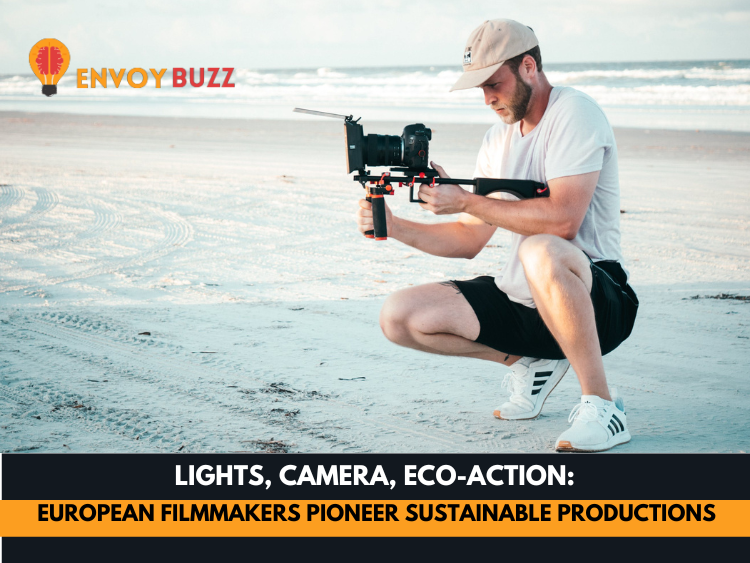Embarking on a journey into the heart of film production in Slovakia, the lens of the industry focuses on the proactive strides taken by European film crews to mitigate the environmental impact of their craft. Aiming for greener pastures, these filmmakers draw inspiration from the European Green Screen project, a commendable initiative disseminating sustainable best practices in audiovisual production.
The legacy of the European Green Screen project, conducted from 2014 to 2020, resonates across borders, with successful trials conducted in the UK, Sweden, Belgium, France, Romania, Spain, Poland, and Slovakia. Despite the official conclusion of the pilot project, its echoes continue to reverberate, inspiring environmentally conscious practices in the participating countries.
Have you ever wondered about the carbon footprint left by the audiovisual industry? Nestled in the northeast Slovakian town of Čertižné, the filming of Martin Gonda’s feature film “Flood” becomes a microcosm of the industry’s ecological challenges. With close to 50 individuals needing housing, sustenance, and transportation, the film crew diligently adheres to the Green Screen project’s guidelines, with a particular emphasis on redefining their approach to transportation.
Zuzana Bieloková, a film commissioner at the Audiovisual Slovak Film Commission, emphasizes the profound impact of their efforts, noting, “You can compare one average European production (feature film) to ten households in terms of the amount of CO2 that it can create (per year).” Producer Katarína Krnáčová sheds light on their sustainable practices, opting for trains over cars or planes and resorting to carpooling when necessary.
Beyond transportation, the film crew prioritizes sustainable catering practices. “The other is catering. So we try to avoid red meat and meat in general. We are trying to use props and costumes that are either rented or second-hand,” shares Krnáčová, illustrating their commitment to reducing their environmental footprint.
The Green Screen project, funded at €2.6 million, receives substantial support, with 85% stemming from the EU Cohesion Policy and the remaining 15% contributed by eight audiovisual companies associated with the project.
Introducing Eureca, an online tool designed to calculate carbon output, the Bratislava Film Commission, collaboratively with Propmálaga from Spain and the Flanders Audiovisual fund, endeavors to raise awareness and promote the use of such tools. Zuzana Bieloková simplifies the functionality of Eureca, enabling filmmakers to pre-calculate the carbon footprint based on various transportation options, aiding them in making informed and environmentally conscious decisions.
Meet Valentína Hučková, the Green Manager on set, a position mandated in Slovakia to qualify for additional funding. The film crew in Slovakia places significant emphasis on reducing electricity consumption, opting for local grid connections over traditional on-set generators. Even seemingly inconspicuous changes, like replacing disposable plastic bottles with washable and reusable ones, contribute to a noteworthy reduction in waste.
As European filmmakers continue to champion green practices behind the scenes, each production emerges as a testament to their commitment to environmental responsibility. Through thoughtful choices in transportation, catering, and waste reduction, the industry takes significant strides towards a more sustainable and eco-friendly future, showcasing that the allure of cinema can coexist harmoniously with environmental preservation.
For more blogs, please visit Envoybuzz

